Guiyang Institute of Information Science and Technology is located at No. 8 Siya Road, Huaxi University Town, Gui'an New District, Guizhou Province. It is adjacent to Huaxi District, a scenic spot in Guizhou known as the "Pearl of the Plateau", and the permanent venue of ASEAN International Exchange Week. It is an independent undergraduate private general college approved by the Ministry of Education of the People's Republic of China. The predecessor of the school was the International Cooperation College of Guizhou University of Technology, which was established by Guizhou University of Technology in 2001; it was renamed Mingde College of Guizhou University of Technology in 2004; in September 2004, Guizhou University and Guizhou University of Technology merged to form a new Guizhou University, and Mingde College of Guizhou University of Technology was renamed Mingde College of Guizhou University; in September 2013, Guizhou University and Tellhow Group signed a cooperation agreement to jointly run the new mechanism of Guizhou University Mingde College; in April 2014, the construction of the new campus of Huaxi University Town in Gui'an New District was started; in 2017, it was fully moved into the Huaxi University Town campus; in May 2021, it was approved by the Ministry of Education, and in August, the People's Government of Guizhou Province approved it and officially changed it to Guiyang Institute of Information Technology; in August 2022, Jiangxi Wenyan Group, a wholly-owned enterprise of the Propaganda Department of the Jiangxi Provincial Party Committee, reached a cooperation with Tellhow Group to jointly run Guiyang Institute of Information Technology, opening a new model of "state-owned and privately-run" for the school and a new chapter of high-quality development. The school fully implements the party's education policy. Since its establishment in 2001, it has always adhered to the socialist direction of running schools, adhered to the fundamental task of cultivating morality and cultivating people, guided by social needs, driven by reform, followed the laws of education and teaching, focused on connotation development, and adhered to the "four-in-one" education concept of value shaping, ability training, knowledge imparting, and model leadership. Deepen the integration of production and education, school-enterprise cooperation, and work-study integration, promote the organic connection between the education chain, talent chain, industrial chain, and innovation chain, and cultivate qualified builders and reliable successors for the socialist cause. The school has more than 15,900 students. There are 1,195 full-time teachers, including 1 second-level professor, 5 third-level professors, 4 provincial experts, 6 doctoral professors, and 54 visiting professors (including 2 overseas visiting professors); 833 people have a master's degree or above, accounting for 69.71%; 578 people have associate senior titles or above, accounting for 48.37%. The school has complete teaching and living facilities, with a total value of nearly 100 million yuan for teaching and scientific research equipment, 907,000 paper books in the library and 100,000 e-books. There are 23 experimental training rooms of various types and 240 practical training teaching bases inside and outside the school. Focusing on the development needs of emerging industries in the country and Guizhou Province, the school takes the "3+1" application-oriented talent training as its goal, benchmarks the three strategic actions of Guizhou's rural revitalization, big data, and big ecology, and implements the "three major and one first" talent training strategy of big data, big cultural tourism, big health and advanced manufacturing, and continuously optimizes the layout of disciplines and majors. There are currently 6 departments (Department of Information Engineering, Department of Digital Media, Department of Health Management, Department of Intelligent Engineering, Department of Civil Engineering, Department of Economic Management), 1 teaching department (Department of Ideological and Political Education), 40 undergraduate majors, covering six major disciplines including engineering, education, literature, science, management, and art. The majors registered with the Ministry of Education for enrollment include data science and big data technology, robotics engineering, artificial intelligence, communication engineering, computer science and technology, network engineering, mechanical design and manufacturing and automation, electrical engineering and automation, automation, environmental engineering, bioengineering, food nutrition and inspection education, digital media technology, civil engineering, architecture, urban and rural planning, electronic information engineering, industrial engineering, public utilities management, health services and management, business administration, marketing, accounting, financial management, administrative management, e-commerce, tourism management, human resources management, engineering management, engineering cost, visual communication design, digital media art, art and technology, music performance, broadcasting and hosting art, network and new media, English, geographic information science, environmental science, leisure sports, a total of 40 undergraduate majors, including 18 engineering majors. Since its establishment, the school has trained nearly 30,000 graduates and made due contributions to local economic development. The school has always integrated students' employment throughout the entire talent training process and recruited students with employment guidance. In recent years, the annual employment rate of graduates has exceeded 95%, and the employment rate of some engineering majors has exceeded 98% for many consecutive years, ranking among the best in undergraduate colleges in the province. The school is moving towards the goal of becoming a model university for integration of industry and education and a first-class private university, and continues to cultivate innovative and application-oriented professionals with high professional quality, high professional ability and a relatively complete knowledge system for local economic development and overall social progress.
-

Tsinghua University
-

Peking University
-

Fudan University
-

Wuhan University
-

Zhejiang University
-

Nanjing University
-

Sun Yat-sen University
-

Tongji University
-

Renmin University of China
-

Jahrom University of Medical Sciences
-

Technological Institute of Tlaxcala Plateau
-

Golfo University
-

Technological University of South Sonora
-

Technological University of Huejotzingo
-

Tizimín Institute of Technology
-

Chilpancingo Institute of Technology
-

Technological Institute of Boca del Rio
-
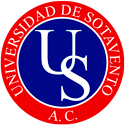
University of Sotavento
-
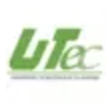
Technological University of Tulancingo
-
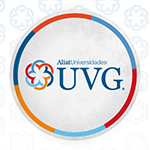
Valle del Grijalva University
-

Technological University of Nezahualcoyotl
-
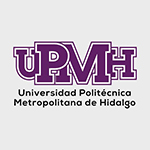
Metropolitan Polytechnic University of Hidalgo
-
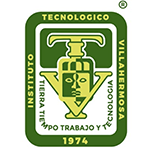
Villahermosa Institute of Technology
-
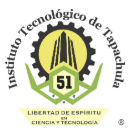
Instituto Tecnologico de Tapachula
-

Technological Institute of Parral

